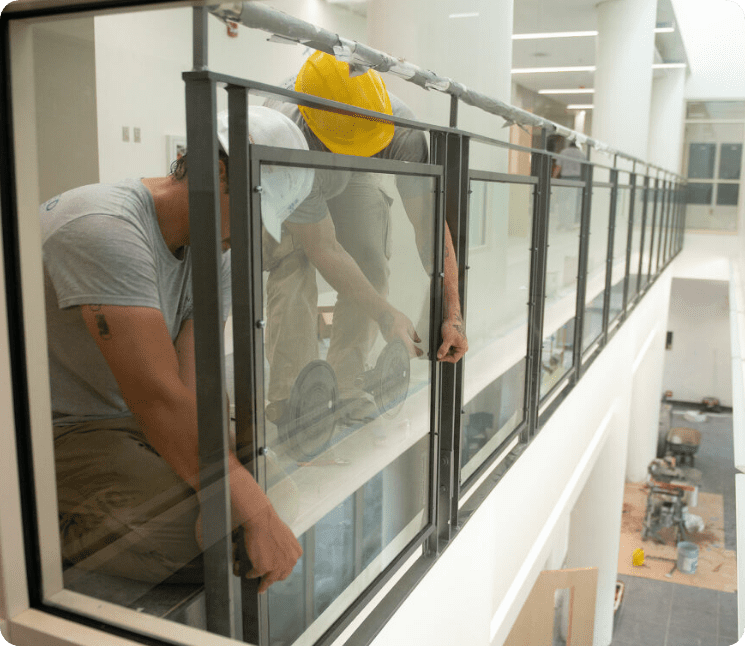In bustling, high-traffic commercial buildings, safety is paramount. Keeping people safe in a commercial space begins with conforming to local building codes, especially when it comes to glass installations. Tempered glass, known for its strength and safety features, is an ideal choice for high-traffic areas in commercial spaces. In Pennsylvania, as in many other places, building codes dictate specific requirements for glass in commercial settings to ensure public safety. Here’s a look into why tempered glass is essential for high-traffic areas, and we’ll use Pennsylvania building codes to illustrate compliance and safety best practices.
Understanding Tempered Glass
Tempered glass is about four times stronger than regular (annealed) glass, which makes it a perfect choice for high-traffic areas. Created through a process of extreme heating and rapid cooling, it is designed to shatter into small, granular pieces upon impact rather than sharp shards. This significantly reduces the risk of injury, making it the ideal choice for commercial installations.
Pennsylvania Building Codes and Tempered Glass
Where Tempered Glass is Required
Building codes in Pennsylvania, which generally align with international standards and can apply in many other states and countries, specify several areas where tempered glass is required:
- Doors: Glass in all swinging, sliding, and revolving doors must be tempered for added safety.
- Adjacent to Doors and Windows: Glass located near doors and windows, where the potential for impact is high, must also be tempered. This typically includes areas within a certain distance from door frames and along staircases and ramps.
- Low-Level Glass Installations: Glass panels installed close to the floor or walking surface is another critical area. This includes full-length windows and certain types of glass walls.
- Bathrooms: In commercial settings, areas with an increased risk of slipping or falling, such as bathrooms, often require tempered glass, especially for shower enclosures or near bathtubs.
Compliance and Inspections
For businesses in Pennsylvania, adhering to these guidelines isn’t just a best practice, it’s also legally required. Regular inspections may occur, and failure to comply with safety glass regulations can lead to penalties, legal liabilities, and increased insurance costs.
Benefits of Tempered Glass in Commercial Spaces
Beyond compliance, the use of tempered glass in commercial spaces offers a few advantages:
- Enhanced Safety: Its breakage pattern minimizes the risk of serious injuries in high-traffic areas.
- Durability: Tempered glass withstands physical impact, thermal stress, and wind pressure better than standard glass, making it suitable for exterior as well as interior use.
- Heat Resistance: It handles temperature variations well, an essential feature for external installations.
Installation and Customization
When installing tempered glass in any commercial setting, it’s vital to work with experienced glazing professionals. They’ll need to ensure the proper measurements and underlying support are factored into the design before the glass is ordered. Once tempered, the glass cannot be cut or altered, meaning that all sizing and customization must occur before the tempering process.
In commercial spaces, the safety of visitors and employees is a top priority. Using tempered glass keeps people safe, and adhering to building codes ensures a long-lasting, durable glass solution. To upgrade or install new glass features in your facility, contact our installation team! We make sure your installation meets, or exceeds, current building code requirements and your investment will pay off in a beautiful, and safe, finished product.
